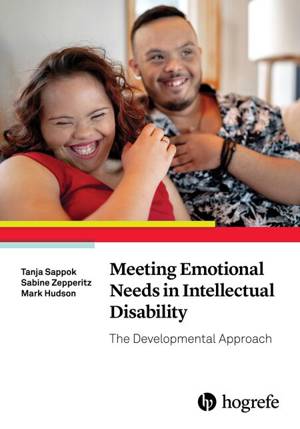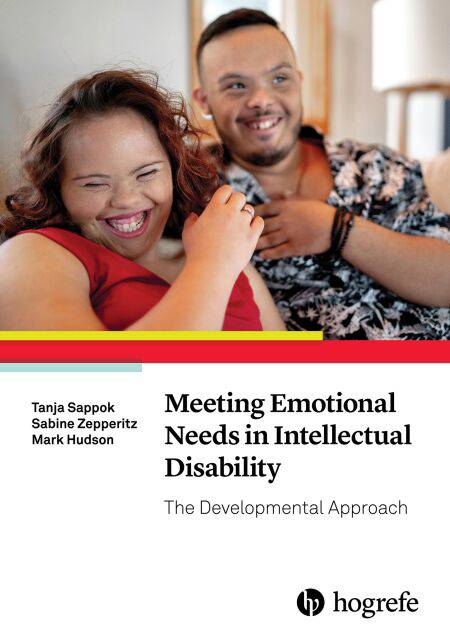
- Afhalen na 1 uur in een winkel met voorraad
- Gratis thuislevering in België vanaf € 30
- Ruim aanbod met 7 miljoen producten
- Afhalen na 1 uur in een winkel met voorraad
- Gratis thuislevering in België vanaf € 30
- Ruim aanbod met 7 miljoen producten
Zoeken
Meeting Emotional Needs in Intellectual Disability E-BOOK
The Developmental Approach
Tanja Sappok, Sabine Zepperitz, Mark Hudson
E-book | Engels
€ 35,99
+ 35 punten
Uitvoering
Omschrijving
Help adults with intellectual disabilities improve their mental health and quality of life
- Introduces a new emotional development, evidence-based model
- Details phases and milestones of development for people with ID
- Explains challenging behaviour and mental health problems according to the model
- Detailed guidance on how to apply the approach in practice
- Full of case examples
More about the book
Using a developmental perspective, the authors offer a new, integrated model for supporting people with intellectual disability (ID). This concept builds upon recent advances in attachment-informed approaches, by drawing upon a broader understanding of the social, emotional, and cognitive competencies of people with ID, which is grounded in developmental neuroscience and psychology. The book explores in detail how challenging behaviour and mental health difficulties in people with ID arise when their basic emotional needs are not being met by those in the environment. Using individually tailored interventions, which complement existing models of care, practitioners can help to facilitate maturational processes and reduce behaviour that is challenging to others. As a result, the "fit" of a person within his or her individual environment can be improved. Case examples throughout the book illuminate how this approach works by targeting interventions towards the person's stage of emotional development.
This book will be of interest to a wide range of professionals working with people with ID, including: clinical psychologists, psychiatrists, occupational therapists, learning disability nurses, speech and language therapists, and teachers in special education settings, as well as parents and caregivers.
- Introduces a new emotional development, evidence-based model
- Details phases and milestones of development for people with ID
- Explains challenging behaviour and mental health problems according to the model
- Detailed guidance on how to apply the approach in practice
- Full of case examples
More about the book
Using a developmental perspective, the authors offer a new, integrated model for supporting people with intellectual disability (ID). This concept builds upon recent advances in attachment-informed approaches, by drawing upon a broader understanding of the social, emotional, and cognitive competencies of people with ID, which is grounded in developmental neuroscience and psychology. The book explores in detail how challenging behaviour and mental health difficulties in people with ID arise when their basic emotional needs are not being met by those in the environment. Using individually tailored interventions, which complement existing models of care, practitioners can help to facilitate maturational processes and reduce behaviour that is challenging to others. As a result, the "fit" of a person within his or her individual environment can be improved. Case examples throughout the book illuminate how this approach works by targeting interventions towards the person's stage of emotional development.
This book will be of interest to a wide range of professionals working with people with ID, including: clinical psychologists, psychiatrists, occupational therapists, learning disability nurses, speech and language therapists, and teachers in special education settings, as well as parents and caregivers.
Specificaties
Betrokkenen
- Auteur(s):
- Uitgeverij:
Inhoud
- Aantal bladzijden:
- 192
- Taal:
- Engels
Eigenschappen
- Productcode (EAN):
- 9781613345894
- Verschijningsdatum:
- 23/01/2022
- Uitvoering:
- E-book
- Beveiligd met:
- Digital watermarking
- Formaat:
- ePub

Alleen bij Standaard Boekhandel
+ 35 punten op je klantenkaart van Standaard Boekhandel
Beoordelingen
We publiceren alleen reviews die voldoen aan de voorwaarden voor reviews. Bekijk onze voorwaarden voor reviews.







